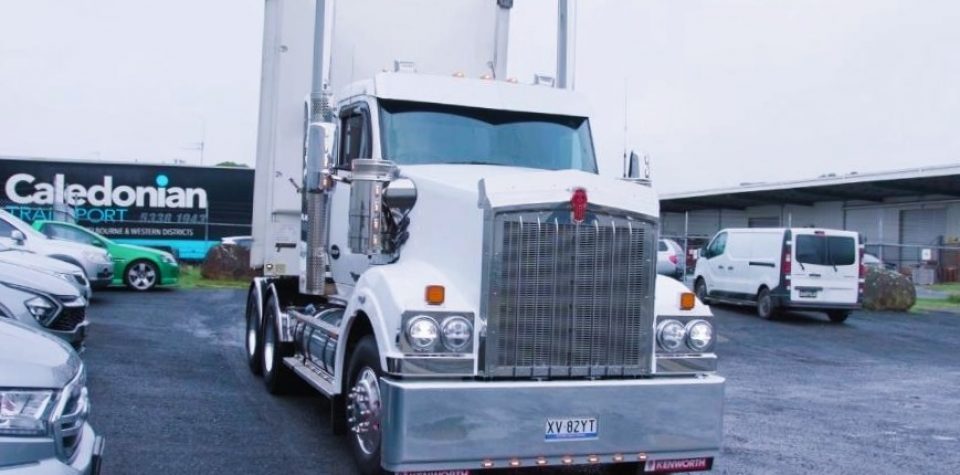Table of contents:
– What is a last mile carrier?
– How do last mile carriers work?
– Typical timeline for a last mile carrier
– Last mile carrier types
– What is last mile carrier tracking?
– Improving the last mile delivery process
What is a last mile carrier?
Last mile carriers, also called final mile carriers, are logistics providers responsible for the last leg of a delivery on its way to consumers. In some cases, these providers have a fleet of vehicles retailers will rely on to provide last mile deliveries to their customers.
Of course, there’s a lot more complexity that goes into what last mile carriers actually do. And, depending on your choice of last mile carrier, you may create a strongly positive or unfortunately negative experience for your customers while they await their packages.
How do last mile carriers work?
Put simply, last mile carriers deliver packages from shipping hubs to their designated final locations as affordably and efficiently as possible. Their fleets of vehicles, whether trucks, vans, or cars, load up on as many parcels as possible from these hubs and provide delivery services to as many destinations as possible.
When you think of a last mile carrier, the first companies that come to mind are likely the major logistics companies spread throughout the country and the world. However, even these larger companies will often rely on smaller more localized carriers for their final mile carrier needs.
The importance of last-mile delivery
Without last mile carriers, it might be altogether impossible for deliveries to end up in the right locations at the right time. Otherwise, customers would have no choice but to pick up their own purchases from processing facilities.
As you can imagine, this would create chaos. Without a final mile carrier, it would take far longer to deliver packages due to the system’s poor efficiency. And when optimized, last mile delivery can actually speed up your overall supply chain and considerably reduce your operational costs.
Typical timeline for a last mile carrier
The time it takes for a last mile carrier depends entirely on the types of products being shipped. For example, if you sell electronic or mechanical items, the wait time may be as long as 4-7 days. However, if you sell food or beverages with a limited shelf life, they may need to arrive on the same day as they were ordered.
In other words, last mile carriers are very flexible when it comes to delivery timelines. They react to consumer demand and can typically ensure products arrive precisely when they’re supposed to.
Last mile carrier types
When choosing a last mile carrier, you need to determine your specific needs and budget before you start shipping. Then, consider each type of final mile carrier – their success ratings, their customer reviews, and average delivery speeds for the items you sell. Here are the most common types of last mile carriers businesses use:
▶️ 3PL
Third party logistics providers, or 3PLs, provide businesses with a range of options since they don’t have to handle the logistics of organizing multiple fleets. Business owners appreciate this arrangement because they don’t have to rely on their own fleets and can focus more on their own inbound logistics needs.
▶️ Multiple Fleets
Working with multiple fleets for your last mile carrier needs usually requires a third party platform but can be handled internally with quality logistics software. When your business needs to use multiple fleets for your last mile needs, make sure your tech stack has a built-in fleet management system so you can handle your dispatching confidently.
▶️ Single Carrier
Using a single carrier solution is often the most straightforward way to handle your last mile carrier needs. This is because you only have to work with one carrier and can track their progress and analyze delivery data much easier. However, many last mile carriers are frequently overwhelmed with delivery requests, which makes it difficult for them to keep up with orders.
What is last mile carrier tracking?
Based on the concept of last mile delivery tracking, last mile carrier tracking is the method by which businesses and customers can monitor the progress of a delivery in real-time. You’ll be able to measure your carriers’ performance and how well customers respond to their delivery experiences.
Last mile carrier tracking includes an array of metrics you and your customers can use to measure your success. Through shipment and order tracking, you’ll have real-time visibility into where an order is at any moment during the shipping process. You’ll also have real-time communication with drivers, improving every aspect of the last mile delivery experience for both your business and your customers.
Why is tracking last mile so important?
Last mile carrier tracking is all about the consumers. In fact, 60 percent of consumers choose not to purchase from a retailer who provided a poor last mile delivery experience. Thus, it’s critical for your business to appeal to your customers by providing features like last mile carrier tracking.
The truth is that consumers simply expect these features now more than ever before. They are no longer content to wait around and be surprised when their packages arrive. Instead, many are eagerly refreshing apps and webpages watching the tracking data to keep up with the whereabouts of their deliveries.
If your business wants to grow by attracting more customers and increasing your profits, you must appeal to your customers’ wishes. Last mile carrier tracking is a way for your business to come across as honest, transparent, and dedicated to providing a high-quality experience with every purchase.
Improving the last mile delivery process
The way you handle your last mile carrier process can make or break your business in the coming years. Fortunately, businesses like yours have a variety of options available to improve their last mile delivery speeds and lower costs.
From utilizing more warehouses, multiple fleets, route management and tracking software for your customers, you can see huge benefits in your outbound logistics practically overnight.
If you’d like to learn more about last mile delivery and last mile carrier tracking, you’ve come to the right place. Reach out to the team at TransVirtual to find out how you can stay ahead of your competition today!



